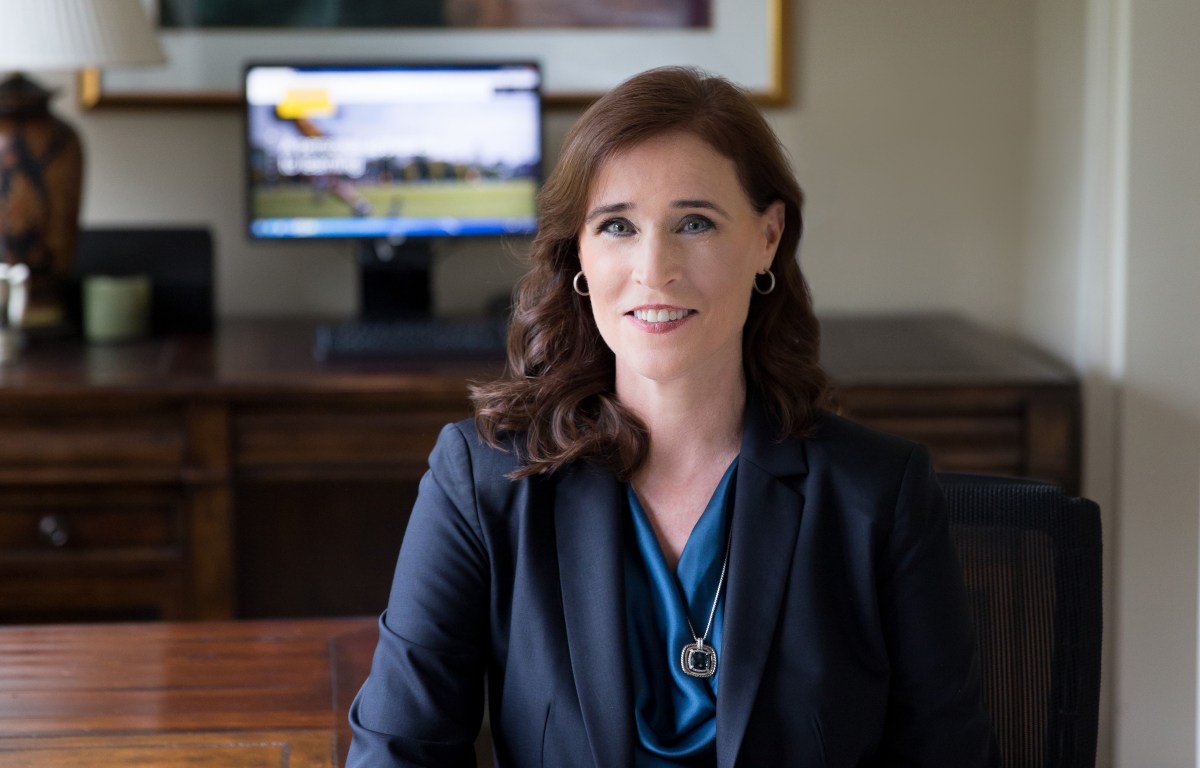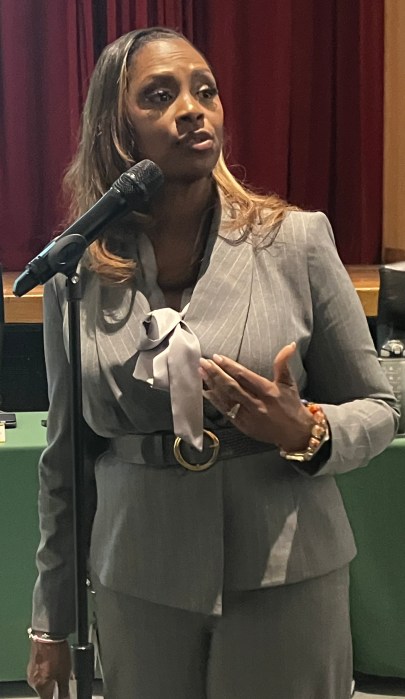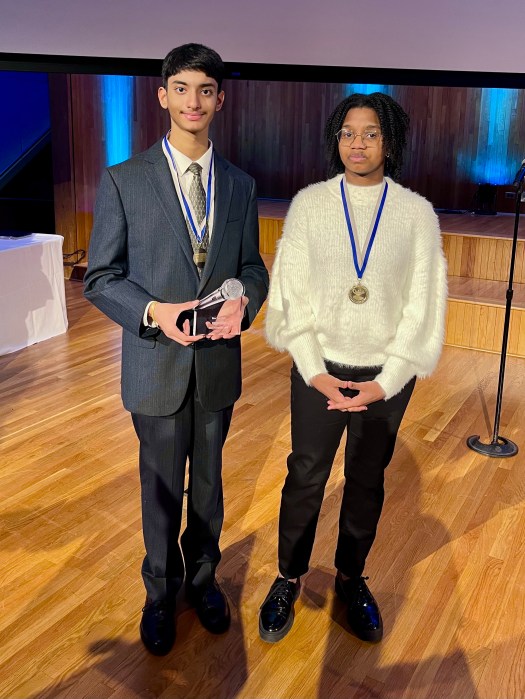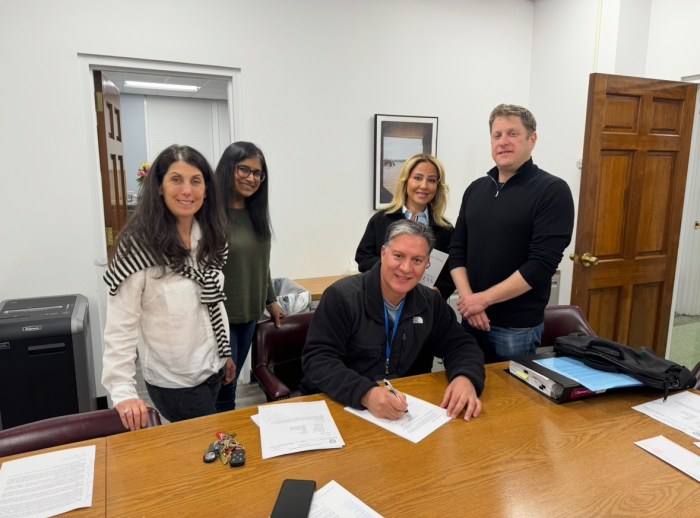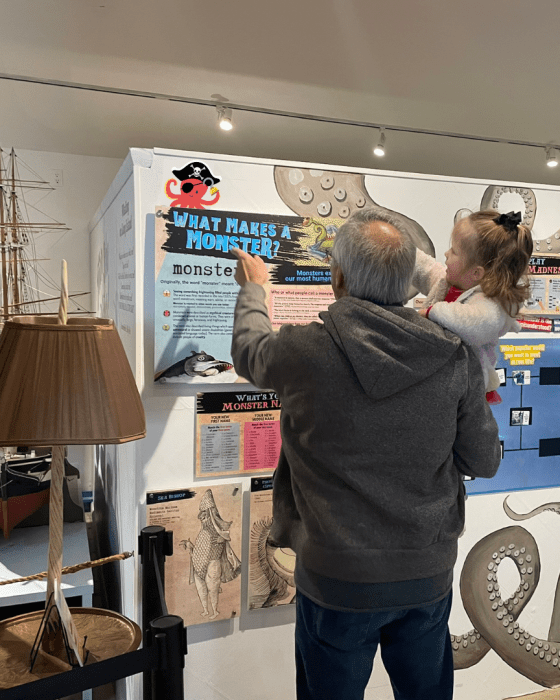Adelphi University President Dr. Christine Riordan, the school’s 10th president, took office in July 2015. She talked with the Long Island Press about the past six years, the pandemic and the future.
What are you proudest of so far, beyond how Adelphi handled the pandemic?
We launched more than 30 academic degree programs over the last five years. We have career outcome placement rates of 94 percent for our undergraduate program and 90 percent for graduate program. We outpaced the national market in terms of starting salaries our students are earning. Our student satisfaction has gone up. We emphasize experiential learning so students get critical experience in their fields.
Have you opened any new buildings and done any major renovations?
We’ve done extensive renovations across the campus, including new science labs as well as updated classrooms. We did a $50 million renovation of our 50-year-old university center. It’s now about 110,000 square feet and a state-of-the-art hub of our university. We finished it during the pandemic, which is remarkable. We completed a $76 million renovation of our Nexus Building, the home to our College of Nursing and Public Health that also has our Student Success Center and our Offices of Diversity, Equity and Inclusion.
How did you personally and the school itself adapt to the pandemic?
We had known about the issue emerging in China since December. Some of our students who had gone home for the holiday break were impacted first. I assembled a threat assessment team focused on the pandemic in January of 2020. By February, we knew it would be very serious. We shut down the university in March, sent our students home and moved more than 1,000 courses and all our services online.
How did you make the transition to online and how much will remain?
Prior to that, all of our units had done business continuity plans. Between February and March, we had everybody do planning in case we had to go remote. We executed those plans. Our Faculty Center for Professional Excellence did an amazing amount of work with our faculty, getting them up to speed with online classes. They hosted online workshops through the spring and summer and focused on the quality of the experience for our students and faculty members.
Will Adelphi continue to offer online options?
We’ll see more classes online. Some classes lend themselves to online format and others need to be in person. For example, our dance instructors in the fall of 2020 conducted dance classes online. We were glad that by spring of 2021, we were able to have them in person. I think there was a lot of learning and innovation. As we continue to think about 2021 and beyond, it’ll be a mixture of online, hybrid – half in person and half online – and fully in-person classes.
What does reopening, if you can call it, that mean?
People haven’t been back together for the most part in a year and a half. We had some classes in person in the fall of 2020 and spring of 2021. Everyone wore masks and socially distanced. We required daily health screenings, performed random Covid testing, installed temperature scanners. And we did what was permitted by the state. Opening a university is like opening a minicity. We have gyms, retail with the bookstore, dining facilities, hotels with residence halls, interfaith, day care. We had about 15 different opening plans per state guidelines. The last thing to reopen was the gyms and athletics.
How is morale and overall mental health after a year of isolation for some people?
I think everybody’s excited to come back together. There’s also some nervousness. We are very concerned about the mental health of our students and employees. We made sure to provide extra mental health resources. We now offer both virtual and in-person counseling for students. We have an employee assistance program. We started a partnership with Headspace to offer meditation sessions for our students.
How is the reopening process different than a typical return in September?
Undergraduate students have an online orientation throughout the summer, and a three-day in-person welcome weekend. Events will allow them to interact with each other and the more than 80 clubs on campus. We will have our annual matriculation ceremony this year to officially welcome them into the university. This year, we’re paying attention not only to the first-year students, but the second-year students. We’re planning social events throughout the fall.
What’s going on with cost and student debt?
Adelphi awards more than $80 million in need- and merit-based scholarship assistance as part of our budgets. It continues to go up every year. As part of our Momentum strategic plan, we started a scholarship matching program. If a donor gave $25,000, we would match it. Our average student debt is about $24,000 and we have a low loan default rate. We work as closely as we can with students and families so they can afford their education and make it viable.
How do you look at diversity and increase it?
Five years ago, I introduced a vice president for diversity, equity, and inclusion and established a new office dedicated to making Adelphi a model university in this area. All search committees for new faculty, administrators, and leadership positions go through diversity training. We look at how we’re recruiting students. We publish our materials in Spanish as well as English. Our financial aid programs are conducted in English and Spanish. All of our colleges and schools now have a diversity, equity, and inclusion strategic plan. More than 1,000 of our employees have taken diversity training. This summer our board elected Adelphi’s first Black male as chair, our first Hispanic female as vice-chair, and our first Asian American male as secretary.
How has enrollment been affected by the pandemic?
During the uncertainty and challenge of the pandemic, we saw a small decline in undergraduate students while students and families paused to evaluate their educational plans. This fall we have a record incoming first-year class. We won’t have final numbers now. It will likely be the largest first-year class we’ve had in the history of the university.
For more business coverage visit longislandpress.com/category/business
Sign up for Long Island Press’ email newsletters here. Sign up for home delivery of Long Island Press here. Sign up for discounts by becoming a Long Island Press community partner here.




